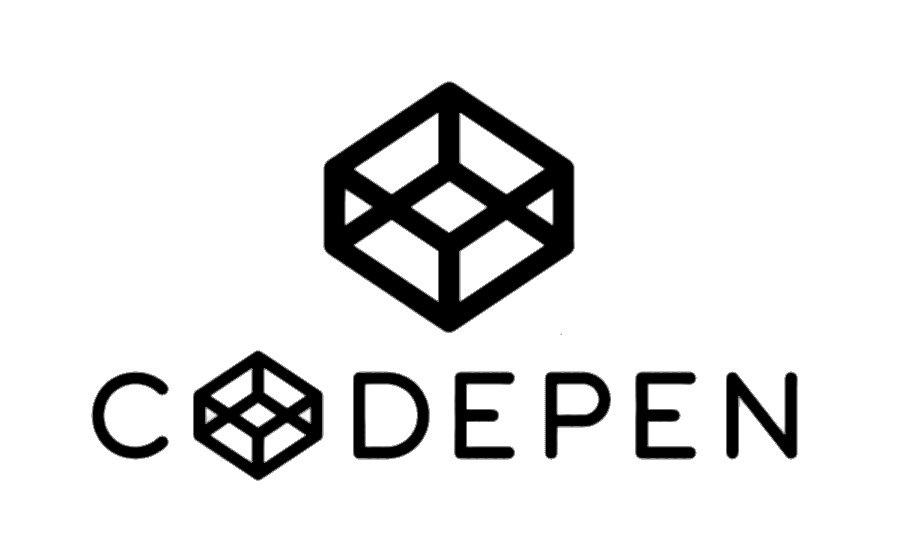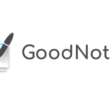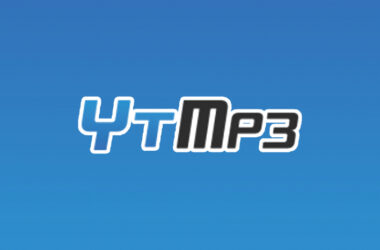In the ever-evolving realm of web development, having a reliable online coding environment is paramount. JSFiddle, with its three-pane layout and real-time collaboration capabilities, has long been a trusted ally for developers seeking swift prototyping and code sharing. Yet, as the digital landscape progresses, so do the demands of developers, leading to a quest for alternatives that offer a richer set of features and capabilities. In this comprehensive exploration, we’ll delve into the features, limitations, and distinctive aspects of JSFiddle alternatives, illuminating the reasons developers may seek JSFiddle alternatives and presenting a detailed guide to some of the top choices available.
The Symphony of JSFiddle Features

JSFiddle orchestrates a seamless coding experience through its array of features:
- Three-pane Layout: Providing dedicated spaces for HTML, CSS, and JavaScript, facilitating a holistic view of code components.
- Versatility with Libraries and Frameworks: Supporting a wide range of libraries and frameworks for enhanced project adaptability.
- Real-time Collaboration: Allowing teams to work simultaneously on code, fostering efficient collaboration and swift feedback.
Navigating JSFiddle’s Limitations
However, no platform is without its limitations. JSFiddle, while proficient in quick prototyping, may not be the ideal choice for larger projects or those with intricate coding requirements. Advanced functionalities, including server-side code execution, face restrictions on JSFiddle. These limitations, though minor, propel developers to explore JSFiddle alternatives that can cater to a broader spectrum of project needs.
- Limitation in Project Scale: Not ideal for larger projects due to its simplicity and focus on quick prototyping.
- Constraints on Advanced Functionalities: Restrictions on advanced functionalities and server-side code execution.
- Simplicity as a Double-edged Sword: While user-friendly, the platform’s simplicity may limit its application in complex coding scenarios.
The Unique Resonance of JSFiddle

JSFiddle’s distinctiveness lies in its quick setup and user-friendly interface. The live link-sharing feature facilitates efficient collaboration and swift feedback, contributing to its popularity. Yet, as developers grapple with more intricate projects, the allure of JSFiddle alternatives that offer advanced capabilities becomes irresistible.
1. The Swift Setup Appeal
The instant gratification of setting up a coding environment with JSFiddle has been a major draw. Developers, especially those engaged in rapid prototyping or quick experimentation, find the swift setup invaluable. This simplicity becomes a significant advantage for those who prioritize speed and ease of access.
2. User-Friendly Interface
JSFiddle’s user-friendly interface has been a cornerstone of its popularity. The intuitiveness of the three-pane layout and the ease with which developers can navigate through different sections make it an excellent choice for those new to coding or those who value a straightforward coding experience.
3. Collaborative Efficiency
The live link-sharing feature on JSFiddle significantly enhances collaborative efficiency. Teams can seamlessly work on code in real time, providing instant feedback and fostering a sense of cohesion in the development process. This collaborative element has been a key factor in JSFiddle’s widespread adoption.
4. Exploring Beyond Swift Prototyping
While JSFiddle excels in swift prototyping, developers are increasingly seeking JSFiddle alternatives that extend beyond this niche. As projects grow in complexity, the need for platforms that offer advanced functionalities, support for larger projects, and a more robust coding environment becomes apparent.
Commonly Used JSFiddle Alternatives for Web Development

1. CodePen: Unleashing Creative Coding
CodePen stands out as a dynamic platform tailored for front-end developers. With its “pens” accommodating HTML, CSS, and JavaScript, it provides an interactive and visually stimulating coding environment. Developers can witness the magic of their code unfold in real-time, making it an excellent JSFiddle alternative for creative coding endeavors.
In addition to its creative prowess, CodePen fosters a vibrant community where developers share and showcase their projects. The platform’s extensive collection of user-generated “pens” serves as a wellspring of inspiration, allowing developers to explore innovative approaches to web development. This collaborative aspect elevates CodePen beyond a mere coding tool to a hub of creativity and shared knowledge.
2. JSBin: Simplified JavaScript Debugging
For those immersed in the intricacies of JavaScript debugging, JSBin takes center stage. Its straightforward and collaborative environment, featuring separate panels for HTML, CSS, and JavaScript, streamlines the debugging process. This focused approach makes JSBin a preferred choice for projects where pinpointing and resolving JavaScript issues is paramount.
Beyond its debugging capabilities, JSBin provides a space for experimentation and learning. Developers can create isolated test cases, analyze code behavior, and refine their understanding of JavaScript intricacies. The platform’s simplicity and emphasis on JavaScript make it a valuable resource for honing debugging skills and gaining a deeper insight into the language’s nuances.
3. Plunker: Community-Driven Web Development
Plunker emerges as a community-driven haven for web development experimentation. Supporting a plethora of web technologies, it fosters collaboration and real-time preview. Developers can not only explore their ideas but also engage with a community of like-minded individuals, making Plunker an exciting JSFiddle alternative for collaborative experimentation.
Plunker’s strength lies not just in its technical capabilities but in the sense of community it cultivates. The platform serves as a virtual meeting ground for developers seeking feedback, sharing insights, and collectively pushing the boundaries of web development. The interactive nature of Plunker extends beyond code, creating an environment where developers not only build projects but also build connections.
4. Repl.it: Versatility in Coding
Repl.it stands out as an online IDE supporting a multitude of languages, including JavaScript. Its versatility extends beyond the standard trio of HTML, CSS, and JavaScript, making it an excellent JSFiddle alternative for developers working on diverse coding projects. The collaborative features further enhance its appeal for team-based development.
In the expansive landscape of coding versatility, Repl.it shines as a Swiss Army knife for developers. Whether exploring new languages, experimenting with algorithms, or collaborating on multifaceted projects, Repl.it provides a seamless environment. The platform’s adaptability and collaborative features empower developers to transcend the boundaries of conventional coding, fostering an environment where creativity knows no limits.
5. Glitch: Building and Deploying Web Apps
Going beyond the realm of coding, Glitch introduces a comprehensive approach by facilitating the building and deployment of web applications. With an online code editor, live preview, and collaboration features, Glitch becomes an enticing option for developers looking to elevate their projects from coding experiments to functional web applications.
Glitch not only streamlines the coding process but also empowers developers to take their projects to the next level. The platform’s focus on building and deploying web applications provides a holistic development experience. From coding to deployment, Glitch serves as a one-stop-shop, simplifying the complexities of web development and enabling developers to bring their ideas to life seamlessly.
6. StackBlitz: IDE Tailored for Frameworks
StackBlitz takes a specialized approach by focusing on frameworks like Angular and React. As an online IDE catering to these frameworks, it provides a dedicated space for developers deeply entrenched in these technologies. The emphasis on framework-specific development sets StackBlitz apart for those seeking a tailored coding environment.
In the realm of framework-specific development, StackBlitz emerges as a beacon for developers navigating the intricacies of Angular and React. The platform’s specialized IDE streamlines the coding process, offering features and tools specifically crafted for optimal framework utilization. Developers immersed in Angular or React projects find StackBlitz to be a valuable ally, providing a coding environment finely tuned to their framework of choice.
7. Dabblet: Diving into Web Code Experimentation
Embracing a unique approach, Dabblet encourages developers to create individual “dabblets” for their web code experiments. While diverging from the traditional online editor structure, it fills a niche space for focused experimentation and sharing. Developers looking for a platform to nurture and share specific coding experiments find Dabblet to be a compelling JSFiddle alternative.
Dabblet’s focus on experimentation transcends the conventional boundaries of coding platforms. By encouraging developers to create individual “dabblets” for their experiments, the platform fosters a culture of focused exploration. Dabblet is not just a coding tool; it’s a canvas for developers to unleash their creativity, share unique solutions, and contribute to the collective growth of the coding community.
8. CodeSandbox: Collaborative Web Development
CodeSandbox steps into the spotlight as a collaborative web development environment. With support for popular frameworks like React, Vue, and Angular, it caters to a wide audience. The emphasis on collaboration and real-time editing makes CodeSandbox an ideal choice for team projects where multiple developers need to contribute to the codebase seamlessly.
In the collaborative arena of web development, CodeSandbox emerges as a powerhouse. Its support for popular frameworks and emphasis on real-time collaboration makes it a go-to platform for teams working on complex projects. CodeSandbox transforms web development into a collaborative journey where ideas converge, code evolves, and projects come to life through the collective efforts of a dynamic team.
Factors To Consider While Choosing The Perfect JSFiddle Alternative

1. Project Scale and Complexity
In the vast landscape of web development, project scale, and complexity are critical considerations. Some JSFiddle alternatives may excel in handling smaller, focused tasks, while others prove indispensable for managing larger and more intricate applications. Assess your project’s scope to align with the capabilities of the chosen alternative.
Understanding the scale and complexity of your project is akin to setting the foundation for a sturdy building. For smaller tasks, nimble JSFiddle alternatives may suffice, offering a streamlined and efficient coding experience. However, as your projects grow in complexity, requiring a multitude of features and robust capabilities, opting for alternatives that specialize in managing intricate applications becomes imperative.
2. Language Support
The language support offered by each JSFiddle alternative is a crucial aspect. Ensure that the platform aligns with the languages and frameworks relevant to your project. This alignment ensures a seamless coding experience, allowing you to express your ideas without language constraints.
In the diverse linguistic landscape of web development, language support becomes the linguistic bridge connecting your coding aspirations to tangible results. Consider the languages and frameworks integral to your project; whether it’s the eloquence of JavaScript or the structured syntax of TypeScript, your chosen JSFiddle alternative should speak the language of your code fluently. This linguistic harmony ensures that your creativity is not stifled by language barriers.
3. Collaboration Features
For developers who thrive on collaboration, assessing the collaboration features of each JSFiddle alternative is imperative. Look for platforms that offer real-time editing, version control, and communication tools within the environment. A collaborative coding space can significantly enhance the efficiency and creativity of your development team.
Collaboration is the heartbeat of innovation in the realm of web development. As developers, our ability to collaborate seamlessly can transform a simple line of code into a symphony of functionality. When evaluating JSFiddle alternatives, prioritize those that act as collaborative canvases, where ideas flow freely, contributions are synchronized in real-time, and the development process becomes a shared journey toward a common goal.
4. Integration with Existing Tools
Smooth integration with existing development tools and workflows is a key factor in choosing the perfect JSFiddle alternative. Evaluate how well each alternative integrates with your preferred tools. A cohesive integration streamlines your coding process, allowing for increased productivity and efficiency.
Just as a well-coordinated orchestra relies on the harmonious integration of various instruments, your coding journey thrives on the seamless integration of tools. From version control systems to build automation tools, the chosen JSFiddle alternative should seamlessly blend into your existing toolkit. This integration ensures that your coding symphony plays to the rhythm of your established workflows, enhancing productivity without missing a beat.
5. Community and Support
The community surrounding each JSFiddle alternative can be a valuable resource. A robust community ensures a wealth of knowledge, resources, and shared experiences. Additionally, reliable support can be a lifeline when facing challenges during development. Consider the strength of the community and the availability of support channels for each alternative.
In the vast expanse of web development, the community serves as a virtual town square—a place where experiences are shared, questions find answers, and knowledge flows freely. When choosing your coding companion, seek alternatives embraced by thriving communities. These communities act as living encyclopedias, offering insights, solutions, and a sense of camaraderie. Equally important is the availability of support channels, providing a safety net when navigating the occasional challenges of development. Opt for JSFiddle alternatives with a robust community and solid support mechanisms to ensure a journey filled with shared wisdom and responsive assistance.
Conclusion: Navigating the Symphony of Choices
In conclusion, while JSFiddle continues to play a vital role in the rapid prototyping and collaborative coding sphere, the expansive world of web development calls for exploration. The alternatives discussed here cater to a spectrum of needs, from the visually stimulating environment of CodePen to the focused experimentation encouraged by Dabblet. By carefully considering factors such as project scale, language support, collaboration features, integration, and community support, developers can confidently choose the perfect JSFiddle alternative that aligns seamlessly with their unique requirements.









